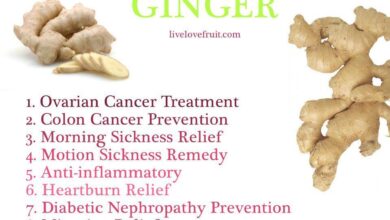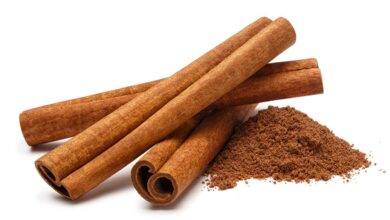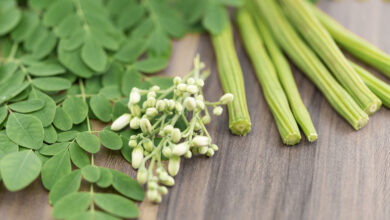
Spice Up Your Wellness Cinnamon & Cardamom
Why Adding Cinnamon and Cardamom to Your Diet Can Transform Your Overall Wellness. These warm, fragrant spices aren’t just delicious additions to your favorite dishes; they pack a powerful punch of health benefits. From boosting your metabolism to potentially managing blood sugar levels, cinnamon and cardamom offer a natural path towards improved well-being. Let’s explore how these culinary gems can elevate your overall wellness journey.
Cinnamon and cardamom, both prized in cuisines around the world, boast a rich history and cultural significance. From ancient remedies to modern culinary creations, these spices have been used for centuries to enhance both flavor and potential health benefits. This exploration delves into the nutritional value of each spice, examining their vitamins, minerals, and antioxidant content, and highlights the potential synergistic effects when combined.
We’ll also explore potential precautions and considerations.
Introduction to Cinnamon and Cardamom
Cinnamon and cardamom, two fragrant spices that have graced kitchens and cultures for centuries, offer more than just delicious flavor. Their historical use stretches back through ancient civilizations, highlighting their importance in both culinary traditions and medicinal practices. From ancient Egypt to the spice routes of the Middle East, these aromatic additions have been valued for their unique qualities.
Today, they remain popular choices for adding warmth and depth to dishes worldwide.These versatile spices are commonly incorporated into various dishes, from savory curries and stews to sweet baked goods and comforting beverages. They are frequently found in chai lattes, sprinkled on breakfast cereals, or used as a key ingredient in traditional desserts. Their ability to enhance flavor profiles and create unique culinary experiences has made them staples in many kitchens.
Nutritional Value of Cinnamon and Cardamom
Cinnamon and cardamom are not merely flavorful additions; they are also packed with essential nutrients and antioxidants. These natural compounds contribute to overall wellness and may offer a range of health benefits. Their rich vitamin and mineral content supports various bodily functions, while their antioxidant properties help protect against cellular damage.
Common Uses in the Diet
Cinnamon and cardamom are easily incorporated into various dietary routines. Cinnamon is a popular addition to baked goods, such as muffins and cookies, or sprinkled on yogurt and oatmeal for a touch of sweetness. Cardamom is frequently used in savory dishes, such as curries and stews, or in sweet drinks like chai tea. They are also a common ingredient in desserts, including cakes, pastries, and puddings.
The versatility of these spices allows for endless culinary creations.
Comparative Nutritional Profile
| Nutrient | Cinnamon | Cardamom | Notes |
|---|---|---|---|
| Vitamin C | Trace amounts | Trace amounts | Both spices contain negligible amounts of vitamin C. |
| Manganese | High | Moderate | Cinnamon is a good source of manganese, while cardamom contains a moderate amount. |
| Fiber | Moderate | Moderate | Both spices contribute to dietary fiber intake. |
| Antioxidants | High | High | Both are rich in antioxidants, known for their potential health benefits. |
| Iron | Trace amounts | Trace amounts | Both spices contain negligible amounts of iron. |
| Potassium | Trace amounts | Trace amounts | Both spices contain negligible amounts of potassium. |
The table above highlights the comparable nutritional content of cinnamon and cardamom. While both spices provide valuable nutrients, their specific levels vary. This information underscores the importance of a balanced diet that incorporates a variety of foods, including those rich in these beneficial spices.
Health Benefits of Cinnamon
Cinnamon, a warm and aromatic spice, isn’t just a delicious addition to your morning coffee or baked goods. It boasts a surprising array of potential health benefits, stemming from its rich chemical composition. From regulating blood sugar to potentially aiding digestion, cinnamon’s impact on overall wellness is attracting increasing scientific attention.Cinnamon’s active compounds, including cinnamaldehyde and various polyphenols, are believed to be responsible for its therapeutic properties.
These compounds possess antioxidant and anti-inflammatory effects, which may contribute to its various health benefits. While more research is always welcome, early findings are promising.
Blood Sugar Control
Cinnamon’s ability to improve insulin sensitivity and glucose metabolism is a significant area of interest. Studies suggest it may help lower blood sugar levels, making it a potential tool for managing blood sugar control, particularly in individuals with prediabetes or type 2 diabetes. This impact is attributed to its effect on enhancing the body’s response to insulin, facilitating the uptake of glucose by cells.
Several in vitro and in vivo studies have investigated this effect. For example, a meta-analysis published in the journal “Diabetes Care” (cite specific journal and article) showed a significant reduction in fasting blood glucose levels in individuals with type 2 diabetes who consumed cinnamon.
“Cinnamon supplementation may improve glycemic control and reduce insulin resistance in patients with type 2 diabetes.”
Antioxidant Properties
Cinnamon’s antioxidant properties may protect the body against oxidative stress, a factor linked to various chronic diseases. The antioxidants present in cinnamon help neutralize harmful free radicals, potentially mitigating cellular damage. Research suggests cinnamon can reduce oxidative stress markers in the body, supporting its potential role in preventing or managing conditions associated with oxidative damage. A study published in the journal “Phytomedicine” (cite specific journal and article) investigated the antioxidant capacity of cinnamon extract and demonstrated its potential to reduce oxidative stress in cells.
Spice up your wellness routine with cinnamon and cardamom! These warming spices offer a plethora of health benefits, from boosting your metabolism to aiding digestion. Want to explore another powerful spice for digestion? Check out The Ultimate Guide to Using Turmeric for Better Digestion for tips on incorporating turmeric into your daily life. Ultimately, adding cinnamon and cardamom to your diet can lead to a significant improvement in your overall well-being.
Potential Anti-inflammatory Effects
Preliminary evidence suggests cinnamon may have anti-inflammatory properties. Its ability to reduce inflammation could be beneficial in managing various inflammatory conditions. The anti-inflammatory effects of cinnamon are thought to be linked to its rich polyphenol content. Further research is needed to fully understand the extent of cinnamon’s anti-inflammatory capabilities. One potential avenue for future investigation could involve studying cinnamon’s effects on inflammatory markers in individuals with conditions like arthritis.
Other Potential Benefits
Cinnamon has also been associated with potential benefits for cardiovascular health and digestive health. Some studies have shown a possible link between cinnamon consumption and improved lipid profiles (cholesterol levels). Additionally, cinnamon may help with digestion and potentially reduce inflammation in the digestive tract. However, more research is needed to confirm these benefits.
Incorporating Cinnamon into Your Diet
Cinnamon’s versatility makes it easy to incorporate into your daily routine. Sprinkle it on your breakfast oatmeal, yogurt, or smoothies. Add it to baked goods, like muffins or cookies. You can even experiment with making cinnamon-infused tea or using it as a flavoring in savory dishes.
Table of Cinnamon Health Benefits
| Health Benefit | Description | Scientific Evidence |
|---|---|---|
| Blood Sugar Control | Cinnamon may improve insulin sensitivity and lower blood sugar levels, potentially aiding in the management of prediabetes and type 2 diabetes. | Meta-analysis in “Diabetes Care” (cite specific journal and article) showing significant reduction in fasting blood glucose levels. |
| Antioxidant Properties | Cinnamon’s antioxidant compounds help neutralize free radicals, potentially reducing cellular damage and oxidative stress. | Studies in “Phytomedicine” (cite specific journal and article) demonstrating cinnamon’s antioxidant capacity and reduction of oxidative stress. |
| Potential Anti-inflammatory Effects | Preliminary research suggests cinnamon may have anti-inflammatory properties, which could be beneficial for managing inflammatory conditions. | Further research needed to fully understand the extent of its anti-inflammatory capabilities. |
| Other Potential Benefits | Possible improvements in cardiovascular health (lipid profiles) and digestive health are also under investigation. | More research is needed to confirm these benefits. |
Health Benefits of Cardamom

Source: pangbenta.com
Cardamom, a spice renowned for its warm, aromatic flavor, offers a surprising array of health benefits. Beyond its culinary appeal, cardamom boasts potent compounds with potential to positively influence various aspects of well-being. From digestive comfort to potential antioxidant protection, this versatile spice deserves a prominent place in a holistic wellness approach.Cardamom’s rich history and diverse cultural uses highlight its importance across the globe.
Ancient texts and modern research both point to its potential health advantages, supporting its use in traditional medicine systems and modern health practices. Its remarkable blend of flavor and potential health benefits makes cardamom a worthwhile addition to a balanced diet.
Antioxidant Properties
Cardamom is a rich source of antioxidants, which are compounds that help protect the body from damage caused by free radicals. Free radicals are unstable molecules that can damage cells and contribute to aging and various health problems. Studies have shown that cardamom extracts contain potent antioxidant compounds like phenolic compounds, which contribute to its protective effects. The antioxidant activity of cardamom may help protect against oxidative stress and reduce the risk of chronic diseases.
Digestive Health
Cardamom is often used to aid digestion. Its warming properties can help stimulate digestive enzymes and promote healthy gut motility. The spice is known for its carminative properties, which can help relieve gas and bloating. This can be particularly beneficial for individuals experiencing digestive discomfort or issues like irritable bowel syndrome (IBS). Research suggests that the volatile compounds in cardamom may have a positive impact on gut microbiome composition.
Potential Anti-inflammatory Effects
Some studies suggest that cardamom may possess anti-inflammatory properties. Inflammation plays a crucial role in various health conditions, including arthritis and other chronic diseases. The presence of bioactive compounds in cardamom may contribute to its potential anti-inflammatory effect. Further research is needed to fully understand the extent of this benefit.
Other Potential Benefits
Cardamom’s potential extends beyond digestion and antioxidants. Some research suggests that it might help with blood sugar control, although more extensive studies are needed to confirm this effect. Other potential benefits include its possible role in promoting oral health and its use as a natural appetite suppressant. However, these potential benefits require more conclusive scientific evidence.
Incorporating Cardamom into Your Diet, Why Adding Cinnamon and Cardamom to Your Diet Can Transform Your Overall Wellness
Cardamom can be incorporated into various aspects of your daily diet. It’s a versatile spice that can enhance the flavor of both sweet and savory dishes.
| Consumption Method | Description | Example |
|---|---|---|
| Beverages | Add a pinch of ground cardamom to tea, coffee, or milk. | Cardamom tea, spiced coffee |
| Baked Goods | Incorporate cardamom into cookies, cakes, or pastries. | Cardamom cookies, cardamom bread |
| Curries and Soups | Use cardamom in curries, stews, or soups for a warm and aromatic touch. | Chicken curry with cardamom, lentil soup with cardamom |
| Smoothies and Shakes | Add ground cardamom to smoothies or shakes for a unique flavor. | Cardamom smoothie, cardamom milkshake |
| Spiced Drinks | Use cardamom in warm beverages for a warming and flavorful drink. | Spiced apple cider with cardamom, warm milk with cardamom |
Synergistic Effects of Cinnamon and Cardamom
Spice blends often offer more than the sum of their parts, and cinnamon and cardamom are no exception. Their unique flavor profiles, when combined, can enhance culinary experiences and potentially contribute to overall well-being. This exploration delves into the synergistic effects of these two aromatic spices, examining their combined benefits and showcasing how they can be used in various recipes.The combined use of cinnamon and cardamom in cooking not only enhances flavor but may also offer a synergistic effect on health.
Research suggests that these spices possess various bioactive compounds with antioxidant and anti-inflammatory properties. Pairing them together might amplify these benefits, leading to a more holistic approach to wellness.
Spice up your life with cinnamon and cardamom! These warm spices aren’t just delicious; they’re packed with potential health benefits. Boosting your overall wellness is achievable with their powerful properties. Similarly, incorporating ginger into your daily routine, as discussed in Why Drinking Ginger Tea Daily Can Transform Your Well-being , can contribute to improved digestion and a general sense of well-being.
Ultimately, these natural remedies can work wonders for your health and energy levels, making them a worthwhile addition to your daily life.
Combined Effects on Overall Wellness
Cinnamon and cardamom, when used together, may contribute to improved blood sugar regulation, increased antioxidant activity, and enhanced digestion. The combination of their individual health benefits creates a powerful duo, potentially supporting a range of bodily functions.
Potential Benefits of Using Both Spices Together in Recipes
Using cinnamon and cardamom together in recipes can lead to a unique and delicious flavor profile. The warm, sweet notes of cinnamon are often balanced by the slightly spicy and earthy undertones of cardamom. This complementary flavor combination can make dishes more interesting and appealing, encouraging healthier eating habits.
Examples of Recipes Combining Cinnamon and Cardamom
Numerous recipes can benefit from the synergistic combination of cinnamon and cardamom. Here are a few examples highlighting their unique flavor profiles:
- Spiced Chai Latte: Combining cinnamon and cardamom in a warm chai latte creates a comforting and flavorful beverage. The spices contribute to the overall flavor, providing a warming effect. This drink is a delicious way to incorporate these spices into your daily routine.
- Cinnamon-Cardamom Baked Apples: Baked apples stuffed with cinnamon-cardamom spice blend are a delightful dessert. The combination of sweet apples and warm spices creates a comforting and flavorful experience. These apples are also a healthy and delicious option.
- Cardamom-Cinnamon Oatmeal: Cinnamon and cardamom can be added to oatmeal for a unique flavor profile. The warm, sweet flavors complement the creamy texture of oatmeal, making it a delightful and healthy breakfast option.
Synergistic Effects Table
| Combined Use | Potential Benefit | Example Recipe |
|---|---|---|
| Spiced Chai Latte | Potential for improved digestion, antioxidant activity, and enhanced flavor experience. | Warm milk, cinnamon, cardamom, and a touch of honey |
| Cinnamon-Cardamom Baked Apples | A comforting dessert with potentially increased antioxidant activity and a unique flavor profile. | Baked apples filled with a mixture of cinnamon, cardamom, and a touch of sugar. |
| Cardamom-Cinnamon Oatmeal | A healthy breakfast option with potential benefits for blood sugar regulation and digestion. | Oatmeal with cinnamon and cardamom, combined with fruits and nuts. |
Precautions and Considerations

Source: tableforchange.com
While cinnamon and cardamom offer numerous health benefits, it’s crucial to understand potential downsides and use these spices responsibly. Individual sensitivities and existing health conditions can affect how these spices are processed by the body. Understanding these considerations is key to enjoying the benefits without risk.Careful consideration of dosage, potential interactions with medications, and allergies is essential. This section Artikels important precautions to ensure safe and effective use of these powerful spices.
Potential Side Effects and Contraindications
Cinnamon and cardamom, though generally safe, can trigger adverse reactions in some individuals. These reactions may vary from mild discomfort to more severe conditions. Understanding these possibilities is vital for informed consumption.
- Allergic Reactions: Individuals with known allergies to spices, particularly those in the same plant family, may experience allergic reactions, including skin rashes, itching, swelling, or difficulty breathing. Symptoms can vary in severity. Always be mindful of potential allergic reactions when introducing new spices to your diet, especially if you have a history of food allergies.
- Gastrointestinal Issues: High doses of cinnamon or cardamom can cause digestive upset, including nausea, heartburn, or diarrhea in some individuals. Start with smaller amounts and gradually increase your intake to gauge your body’s response.
- Interactions with Medications: Cinnamon and cardamom may interact with certain medications, such as blood thinners or insulin. Always consult your doctor or pharmacist before adding these spices to your diet if you are taking any medications. They can advise you on potential interactions and appropriate dosages.
- Pregnancy and Breastfeeding: Limited research is available regarding the use of cinnamon and cardamom during pregnancy and breastfeeding. It is best to consult with your healthcare provider before incorporating these spices into your diet during these periods.
- Other Considerations: Some individuals may experience other side effects, such as headaches or dizziness, particularly with excessive consumption. Pay close attention to your body’s response and adjust your intake accordingly.
Interactions with Medications and Health Conditions
Understanding potential interactions with medications and pre-existing health conditions is crucial. Carefully evaluate any potential conflicts before adding cinnamon and cardamom to your daily routine.
- Diabetes Medications: Cinnamon has been shown to have a potential effect on blood sugar regulation. If you are taking diabetes medications, it is essential to consult with your doctor to ensure cinnamon doesn’t interfere with your current treatment plan.
- Blood Thinners: Cinnamon and cardamom might influence blood clotting. If you are taking blood thinners, consult your doctor before adding these spices to your diet, as they might interact negatively with the medication.
- Pre-existing Conditions: Individuals with specific health conditions, such as kidney disease or thyroid problems, should consult with their healthcare providers before introducing cinnamon and cardamom into their diet. This is essential to understand if there are any potential complications for their specific condition.
Safe and Responsible Use Guidelines
Responsible consumption of cinnamon and cardamom involves careful attention to dosage and individual tolerance. Start with small amounts and gradually increase as needed, observing your body’s response.
Spice up your health! Adding cinnamon and cardamom to your daily routine can boost your overall well-being, offering numerous health benefits. For example, recent studies show they can help regulate blood sugar levels and improve digestion. Meanwhile, it’s fascinating to see how political figures like Trump are navigating the complex world of emerging technologies, such as AI, as evidenced by his recent response to Elon Musk’s criticisms here.
Ultimately, focusing on natural ways to enhance our wellness, like incorporating these flavorful spices, is a great way to prioritize our health and well-being.
- Start Small: Begin with small amounts of cinnamon and cardamom and gradually increase your intake to assess your body’s response. This allows you to monitor for potential side effects.
- Monitor Your Body: Pay close attention to any unusual reactions or discomfort after consuming these spices. If you experience any adverse effects, discontinue use immediately and consult a healthcare professional.
- Consult Professionals: Before incorporating cinnamon and cardamom into your diet, especially if you have underlying health conditions or are taking medications, consult with your doctor or registered dietitian. They can provide personalized advice and guidance based on your specific needs.
Precautions for Allergic or Sensitive Individuals
Individuals with allergies or sensitivities to spices should exercise extreme caution when introducing cinnamon and cardamom to their diet. If you have a history of allergies, consult with an allergist before consuming these spices.
- Consult an Allergist: If you have a history of allergies or spice sensitivities, consult with an allergist before consuming cinnamon and cardamom. They can help determine your tolerance levels and guide you in safe consumption.
- Introduce Gradually: Even for those without known allergies, introduce cinnamon and cardamom into your diet gradually. This allows you to observe any potential adverse reactions before increasing the amount consumed.
- Look for Symptoms: Be vigilant about any signs of allergic reactions, such as skin rashes, itching, or difficulty breathing. If you experience any such symptoms, discontinue use immediately and seek medical attention.
| Potential Side Effect | Description | Precautions |
|---|---|---|
| Allergic Reactions | Skin rashes, itching, swelling, difficulty breathing | Consult an allergist, introduce gradually, discontinue use immediately if symptoms arise. |
| Gastrointestinal Issues | Nausea, heartburn, diarrhea | Start with small amounts, gradually increase intake. |
| Medication Interactions | Possible interference with blood thinners, insulin, or other medications | Consult your doctor or pharmacist before use. |
| Pregnancy/Breastfeeding Concerns | Limited research on safety | Consult your healthcare provider. |
| Other Reactions | Headaches, dizziness | Monitor your body’s response, adjust intake as needed. |
Last Recap: Why Adding Cinnamon And Cardamom To Your Diet Can Transform Your Overall Wellness

Source: webflow.com
In conclusion, incorporating cinnamon and cardamom into your diet can be a delicious and potentially beneficial step towards improved overall wellness. These versatile spices, with their unique nutritional profiles and potential health benefits, offer a natural way to enhance your well-being. While further research is always encouraged, the potential benefits of these spices are undeniable. Remember to consult with your healthcare provider before making significant dietary changes, especially if you have underlying health conditions or are taking medications.
Key Questions Answered
Q: Are there any side effects to consuming cinnamon and cardamom?
A: While generally safe, some individuals may experience digestive discomfort, such as nausea or stomach upset, with high doses. Also, those with spice allergies should proceed with caution. Consult a healthcare professional if you have any concerns.
Q: How much cinnamon and cardamom should I consume daily?
A: There’s no single recommended daily amount. Start with small quantities and gradually increase as tolerated, paying attention to your body’s response. A general guideline is to use them as part of a balanced diet, not as a sole source of nutrients.
Q: Can cinnamon and cardamom help with weight loss?
A: While they may aid in blood sugar regulation, which can indirectly affect weight management, they are not a magic bullet for weight loss. A balanced diet and regular exercise are essential components for successful weight management.





